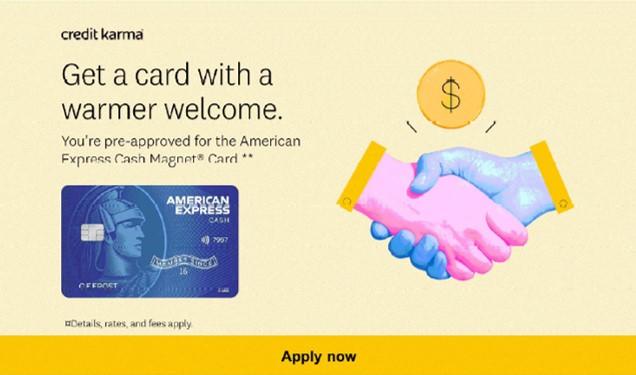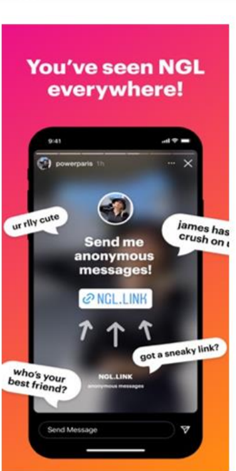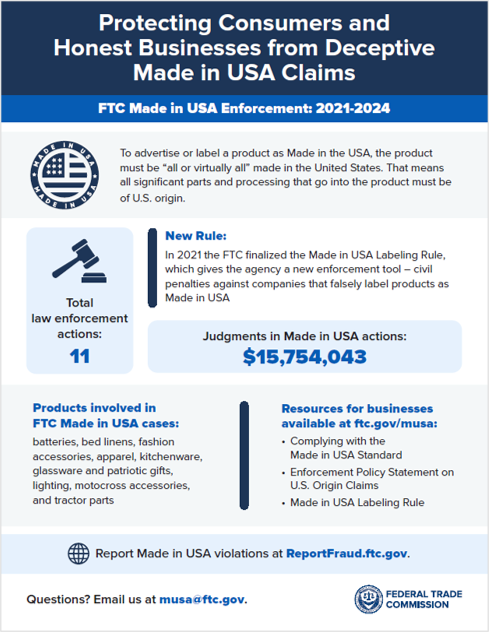$3 million FTC settlement disapproves of Credit Karma’s deceptive “pre-approved” claims lfair September 1, 2022 | 11:15AM $3 million FTC settlement disapproves of Credit Karma’s deceptive “pre-approved” claims By Lesley Fair In the annals of marketing, “pre-approved” ranks right...
$3 million FTC settlement disapproves of Credit Karma’s deceptive “pre-approved” claims lfair September 1, 2022 | 11:15AM$3 million FTC settlement disapproves of Credit Karma’s deceptive “pre-approved” claims
In the annals of marketing, “pre-approved” ranks right up there with “free” and “low-calorie” as a term guaranteed to attract people’s attention. The FTC just announced a $3 million proposed settlement with Credit Karma for allegedly luring consumers in with deceptive promises they had been “pre-approved” for financial products, including major credit cards. The truth? For many of these offers, almost a third of the people who received a “pre-approved” offer from Credit Karma and went to the time and trouble to apply for it were denied.
Credit Karma has a consumer-facing website and mobile app where people can access credit information and find financial calculators and other resources. Credit Karma also uses its site and app to market third-party financial products, including credit cards. To use most of Credit Karma’s tools, people must sign up for an account by providing personal information, including their name, date of birth, and last four digits of their Social Security number. Credit Karma also collects additional information about them from other sources – and the company isn’t fooling about that. The complaint alleges that Credit Karma “has amassed over 2,500 data points, including credit and income information, per member.”
Beginning in 2018 and for at least three years after that, Credit Karma made “pre-approved” claims on its website, through its app, and in email marketing to consumers. For example, one email sent to people with Credit Karma accounts used the subject line “You’re pre-approved for this Amex Card.” When consumers opened the message, they saw a picture of the credit card and the assurance “you’re pre-approved.”

Credit Karma pushed the “you’re pre-approved” message throughout its marketing campaign, using large type, repetition, and colorful graphics. But even to the extent that Credit Karma made any purported qualifications to that express claim, the “disclaimers” were often smaller and less noticeable than the prominent “pre-approved” claim. And even if consumers read the additional text, Credit Karma assuaged concerns by using reassuring statements like “Approval isn’t guaranteed, but 90% of pre-approved applicants get this card.”
So what really happened when consumers decided to take Credit Karma up on those “pre-approved” offers? According to the complaint, for many offers, almost a third of the “pre-approved” people who applied were denied, based on underwriting review – the actual process used by the financial product companies to make actual approval determinations. What’s more, when consumers applied for credit offers, the complaint alleges that the financial entity made a “hard pull” of their credit report, which generally lowers a consumer’s credit score – hardly what consumers were expecting when they had been told they were “pre-approved.” The upshot: After wasting a significant amount of time applying for offers, many consumers found themselves without the “pre-approved” credit card or loan and with a damaged credit score that made it harder for them to get other financial products in the future.
You’ll want to read the complaint for details, but the FTC alleges that Credit Karma knew what it was doing in emphasizing the “pre-approval” claim and rejecting alternative ways to describe the offers. For example, the company conducted A/B testing to compare versions of its marketing materials and learned that the “pre-approval” claim resulted in an increase in click rates when compared to a version that told people they had “excellent” odds of approval.
Credit Karma could hardly be surprised that its “pre-approval” claims conveyed certainty to consumers. The company’s own training materials advised its customer service representatives they could expect to hear from people asking “I was declined for a pre-approved credit card offer .... How is that possible?!?!?!” Good question. As one Credit Karma employee put it, “If you are told you are pre-approved that should mean you are pre-approved. That shouldn’t mean you have a good chance. If all you have is a good chance then we should call it that.”
In addition to requiring $3 million for consumers harmed by Credit Karma’s actions, the proposed settlement prohibits the company from making deceptive claims about whether people are approved or pre-approved for a credit offer or about the odds or likelihood they’ll be approved. Once the proposed settlement is published in the Federal Register, the FTC will accept comments for 30 days.
What can other companies take from the action in this case?
The FTC will continue to illuminate dark patterns. The 2021 Bringing Dark Patterns to Light event – and multiple law enforcement actions before and since then – demonstrates the agency’s commitment to challenging interfaces, text, design elements, etc., that lure consumers into misleading transactions. The illegal methods companies use vary widely, but they all have one thing in common: They’re grounded in deception or unfairness, in violation of the FTC Act.
Time is money. Under the proposed order, the FTC will return $3 million to consumers whose time was wasted by Credit Karma’s deceptive claims. The message for other companies is that it’s bad business to entice people with misleading representations and then waste their time with an online obstacle course that doesn’t result in the advertised benefit.
Think like a customer. Bringing people in under false pretenses is likely to arouse consumer ire and attract law enforcement attention. That’s why advertisers should review their websites, apps, and marketing materials through the eyes of prospective customers. Part of that consumer-centric approach should include regularly evaluating consumer complaints and listening to what people are saying to your customer service representatives.












